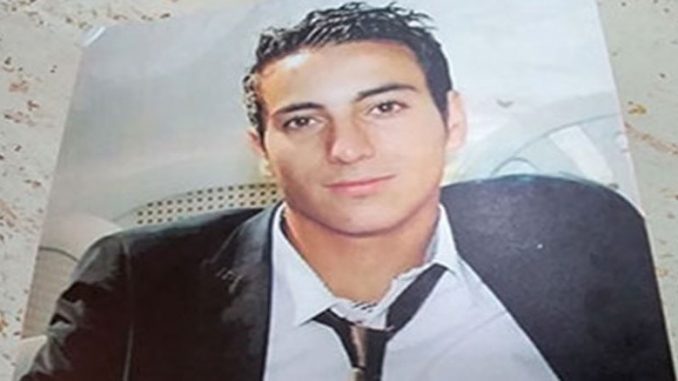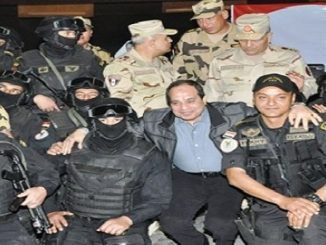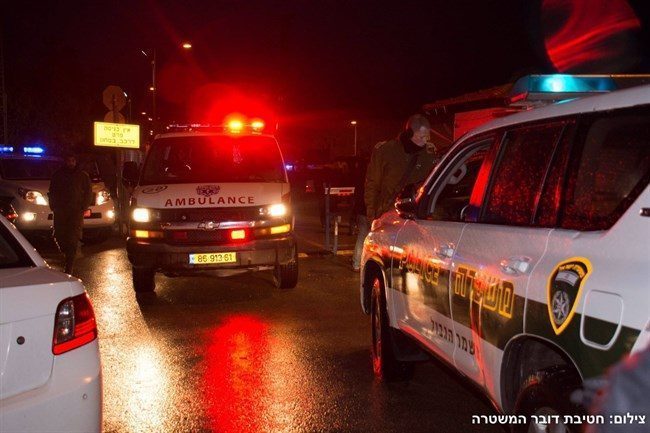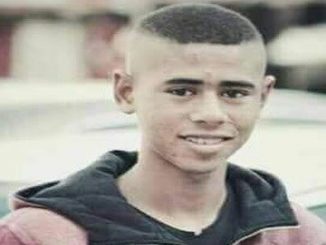
Israeli human rights NGO B’Tselem released a report on Tuesday slamming Israeli border police’s “profound disregard” for the life of 17-year-old Qusay al-Umour, who was shot dead in January during clashes in the southern occupied West Bank village of Tuqu, calling his killing “unjustified and unlawful.”
Video footage of the moments immediately following al-Umour being shot by Israeli forces elicited a strong emotional response from locals at the time, as it showed Israeli soldiers violently seizing and carrying the teenager’s limp body by his dangling arms and legs, his head and back banging on the ground.
In Tuesday’s report, B’Tselem detailed the hour and a half of events leading up to the moment Israeli border police fatally shot al-Umour with four 0.22-inch caliber bullets, contradicting the Israeli army’s claims at the time that the clashes “involved some 200 Palestinians, which included the throwing of stones and Molotov cocktails at (Israeli) forces,” and that al-Umour was the “main instigator” in the clashes.
“This version of events has no basis in reality,” B’Tselem said, pointing out that not only were no Molotov cocktails thrown prior to the shooting of al-Umour, but that the clashes had significantly calmed in the moments before the teen was killed.
“Prior to the shooting of al-Umour, the clashes in Tuqu included only stone throwing at the security forces by some 10 youths. Even these clashes had practically stopped when the Border Police officer shot and killed al-Umour. (B’Tselem’s) investigation also shows that al-Umour and his friends were at a distance of 80 to 100 meters from the security forces, so they did not constitute any danger.”
B’Tselem included the witness testimony of Taysir Abu Mfareh, 47, a resident of Tuqu and the administrative director of the Tuqu Municipal Council, who said “things were much calmer” at the time al-Umour was killed.
“Three guys, including al-Umour, moved over to the olive grove, about 80 meters away from the soldiers. Things were much calmer. I looked at the soldiers and at the youths, who threw a few stones at the soldiers every few minutes. I thought that the clashes were just about over,” Mfareh said.
“Suddenly I saw a soldier behind a military vehicle shoot toward the olive trees, and I heard gunfire, not loud but several bullets in quick succession. Several soldiers rushed toward the olive trees, running until they reached the injured youth. A few soldiers picked him up and ran with him toward the military jeeps, his back hitting the ground.”
B’Tselem went on to point out that al-Umour was killed by 0.22 inch caliber bullets, which according to the open-fire regulations of the Israeli army, should be used only in situations of “mortal danger,” similar to the use of live ammunition.
“Over the past two years, however, the military has almost routinely used these bullets as a means of crowd control, even when the troops on the ground are not in mortal danger. Over the past two years, this policy has led to the deaths of six Palestinians (including al-Umour) and to hundreds of injuries, some severe,” B’Tselem concluded.
Following al-Umour’s death, Palestinian legal NGO BADIL also concluded that “whether he was throwing stones at the soldiers or not, al-Umour could not have presented a lethal threat to the well-protected Israeli border police from a distance of around 100 meters, and the use of live ammunition against him was therefore unjustified.”
The NGO denounced the “complete lack of consideration for (al-Umour’s) human dignity or his traumatic injuries.”
In dozens of cases, Israel’s version of events has been disputed by witnesses, activists, and rights groups who have denounced what they have termed a “shoot-to-kill” policy against Palestinians who did not constitute a threat at the time of their death, or who could have been subdued in a non-lethal manner — amid a backdrop of impunity for Israelis who committed the killings.
Though the Israeli army and military police opened an official investigation into al-Umour’s death, the precedent set by cases such as that of 15-year-old Khalid Bahr, who was shot dead by Israeli forces in October for allegedly throwing rocks at soldiers during a raid in a Hebron-area village, casts doubts on the likelihood of real accountability.
According to rights group Yesh Din, of 186 criminal investigations into suspected offenses against Palestinians opened by the Israeli army in 2015, just four resulted in indictments.



